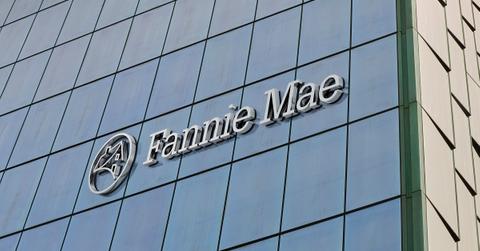Will Fannie Mae Go Private?
Fannie Mae has been funneling all of its profit to the federal government for more than a decade, which leaves other investors with nothing.
Dec. 2 2020, Published 8:12 a.m. ET
Fannie Mae, officially known as Federal National Mortgage Association, was founded in 1938. It has been a publicly-traded company since 1968. Who owns Fannie Mae? What does Fannie Mae do? Fannie Mae is a leading source of financing for mortgage lenders. Its operation makes affordable mortgages available to low-income Americans.
Fannie Mae doesn’t provide home loans itself. Instead, it provides backing for mortgage lenders in the secondary market. In the effort to create a mortgage market that works for all, Fannie Mae has a sibling called Freddie Mac, officially known as Federal Home Loan Mortgage Corporation.

Is Fannie Mae government-owned?
Many people are still confused about who owns Fannie Mae. Does the government own the mortgage giant or is it in the hands of private investors? Fannie is sponsored by the federal government. The government owns all of Fannie Mae’s senior preferred stock through the Treasury Department. As a result, Fannie Mae funnels all of its profit to the government. In addition to the federal government sweeping all of Fannie Mae's profit, the U.S. president also appoints some of the directors on the company’s board.
Is Fannie Mae backed by the government?
The U.S. government doesn’t just come to Fannie Mae to collect money. The federal government has Fannie Mae’s back if it runs into financial trouble. For example, the government stepped in and bailed Fannie Mae out during the 2008 financial crisis.
The financial crisis, with its origin in the mortgage market, dealt heavy blows to Fannie Mae's business. Freddie Mac was also impacted and received government support. With their stock prices sliding, Fannie Mae and Freddie Mac delisted their stocks from the NYSE after falling short of the exchange’s listing requirements.
Is Fannie Mae a bank?
Fannie Mae isn’t a bank per se. It operates as an indirect lender to the mortgage market. Fannie Mae purchases mortgages from banks. That way, it gives banks more money to make more mortgages, which keeps the real estate market going. To get a Fannie Mae-backed home loan, you will need to identify an approved mortgage lender and complete a loan application form.

Will Fannie Mae go private?
Making Fannie Mae private has been a big debate for a long time. The Trump administration wanted to release Fannie Mae and Freddie Mac from government control. Indeed, the push to privatize the mortgage giants kicked into high gear after the 2020 presidential election. The Trump administration looked determined to undo the mortgage giants' current arrangement before Joe Biden takes over. Trump’s criticism of Fannie Mae started long before he became president.
Fannie Mae and its counterpart Freddie Mac are exempt from state and local taxes. Some worry that mortgage costs will increase and disadvantage low-income borrowers if Fannie Mae goes private and its tax exemptions disappear.
Should you buy Fannie Mae stock?
Fannie Mae going private may disrupt the mortgage market. However, it may also be a boon for investors. Currently, Fannie Mae takes all of its profit to the government, which leaves other shareholders with nothing. If the government lets Fannie Mae go private, it may start distributing dividends to its stock investors.
Currently, Fannie Mae stock trades over the counter under the ticker symbol "FNMA." Freddie Mac also has its stock trading over the counter under the ticker symbol "FMCC." Fannie Mae and Freddie Mac rank among the best penny stocks to invest in right now because of their strong business.

